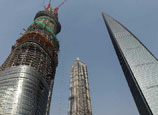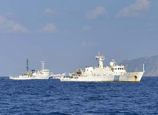
CHINA'S Consumer Price Index, a main gauge of inflation, rose 2 percent in November, up from the previous month's 1.7 percent, the National Bureau of Statistics said yesterday.
October's figure was a 33-month low and last month's increase was the first acceleration since August.
"The November growth rate was largely attributable to a surge in food costs," said Wang Jun, an expert with the China Center for International Economic Exchanges.
Food prices, which account for nearly a third of the total basket, rose 3 percent in November from a year earlier, pushing the index up 0.95 percentage points.
Vegetable prices jumped 11.3 percent year on year in November as cold weather disrupted supplies, pushing the CPI up 0.27 percentage points. Prices for aquatic products gained 4.9 percent from one year earlier.
Excluding food prices, China's CPI edged up 1.6 percent.
Liu Ligang, chief economist for China at Australia & New Zealand Banking Group Ltd, said there should be no immediate inflation concerns.
"China's inflation has been kept at a relatively low level this year, and the negative producer prices show the pressure remains high for Chinese manufacturers to de-stock inventory. Thus the future inflationary risks should not be exaggerated," Liu said.
The Producer Price Index, a factory-gate measurement of inflation, contracted 2.2 percent year on year in November.
The falling rate narrowed from a 2.8 percent slowdown in October.
In the first 11 months, the consumer prices gained 2.7 percent annually, making it almost certain that China will reach its goal of keeping the CPI growth within 4 percent this year.
Other key economic indicators for November pointed to positive results.
Industrial production growth picked up to 10.1 percent from October's 9.6 percent, as demand from both home and abroad recovered.
Retail sales expanded 14.9 percent, strengthening from October's 14.5 percent advance.
Fixed-asset investment growth held up at 20.7 percent in the first 11 months, flat with the rate in the January-October period.
Mild recovery
Li Wei, an economist at Standard Chartered Bank, said the numbers showed increasing signs of a mild recovery in the economy, and there should be no dramatic change in the current policy stance.
China will maintain the continuity and stability of economic policies in 2013, and the focus is on adjusting policy properly and in a timely manner, China's leaders said at a Politburo meeting last week.
"We expect this stance to be endorsed at the upcoming annual Central Economic Work Conference," Li said.
The conference, usually held in the first half of December, sets the tone for next year's economic policy stance.
China's economy has performed better than expected since September, consolidating a recovery in the final quarter.
Its gross domestic product grew 7.4 percent on an annual basis in the third quarter, the slowest pace in more than three years.
Some economists said the economic growth may rebound to 7.8 percent in the fourth quarter, paving the way for a 7.7 percent rate for the year.
The Chinese Academy of Social Sciences said last week that China's growth may accelerate to 8.2 percent in 2013.














 Spectacular images of erupting volcanoes
Spectacular images of erupting volcanoes


![]()
